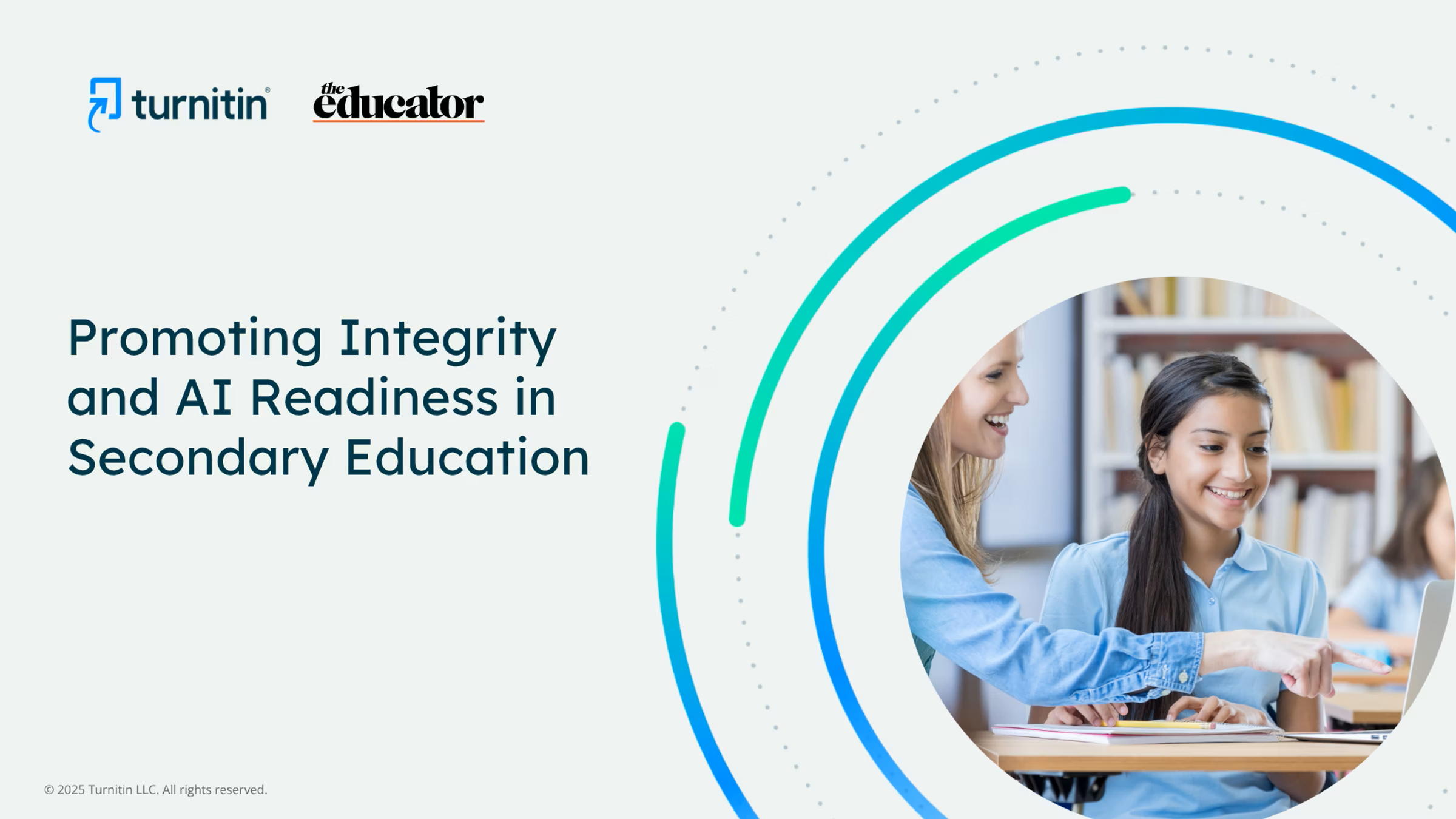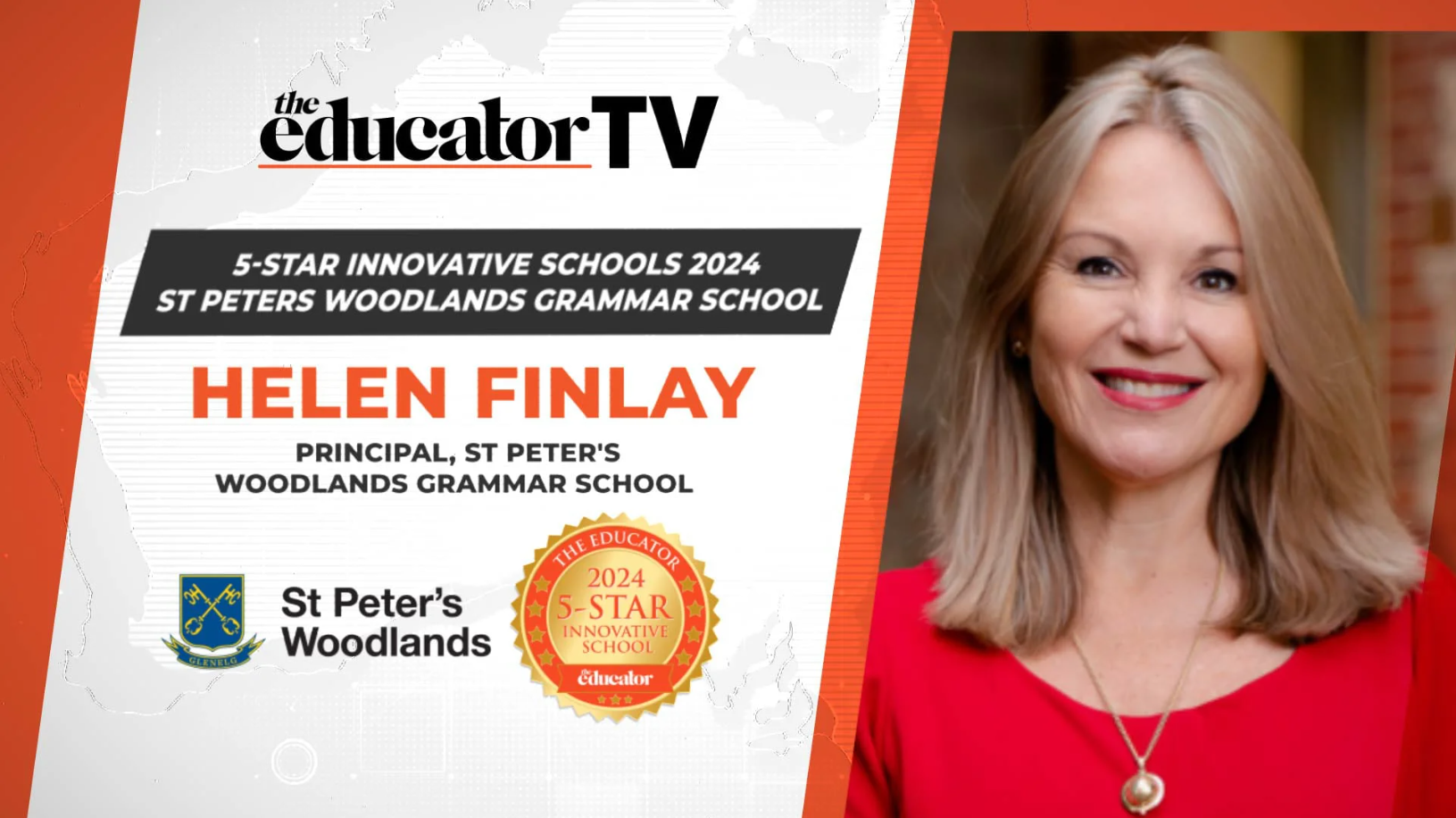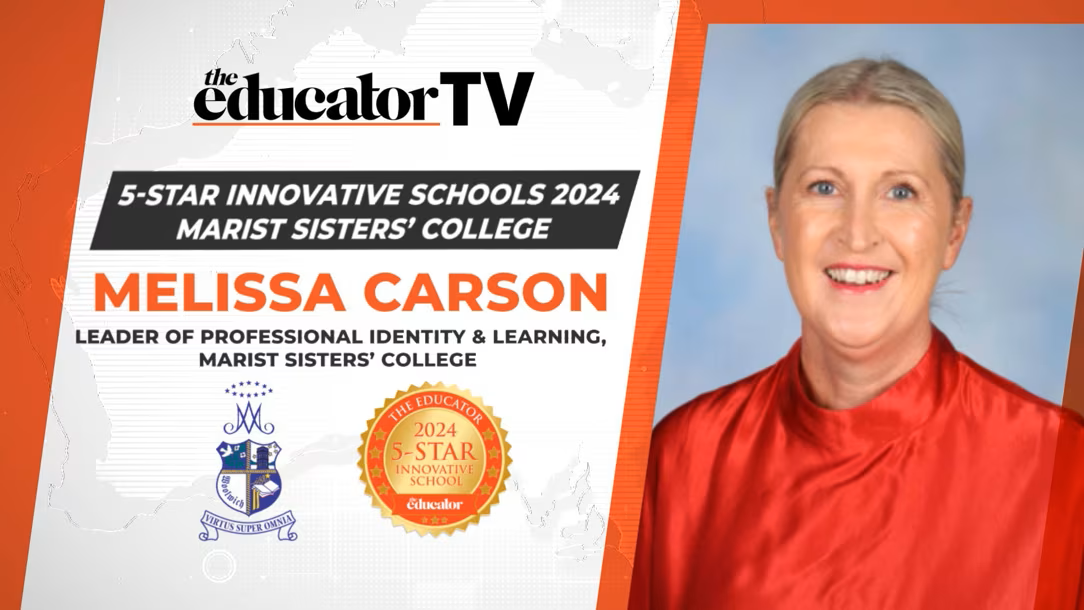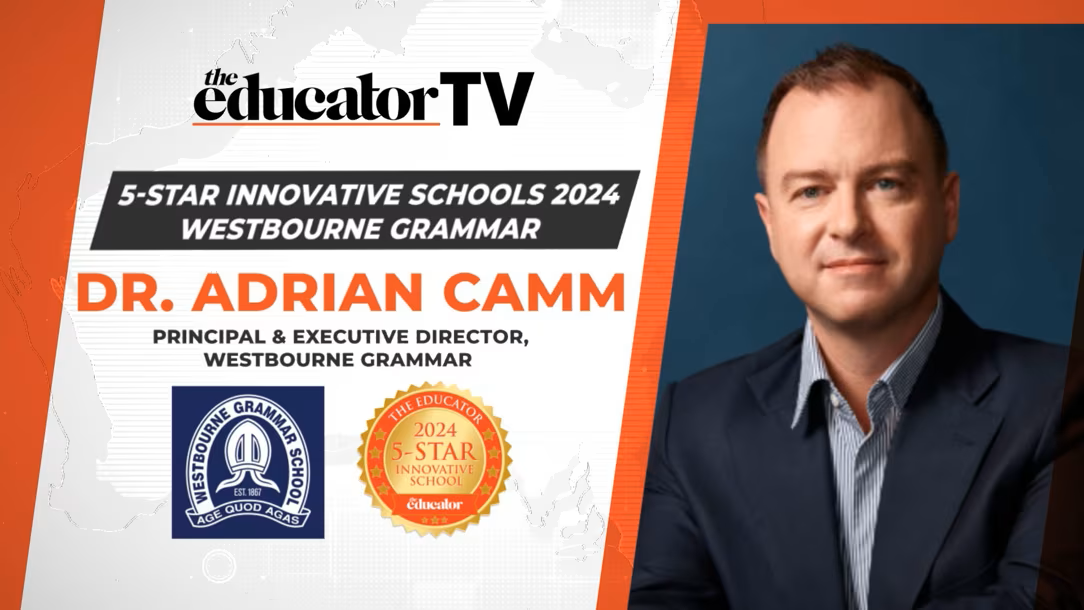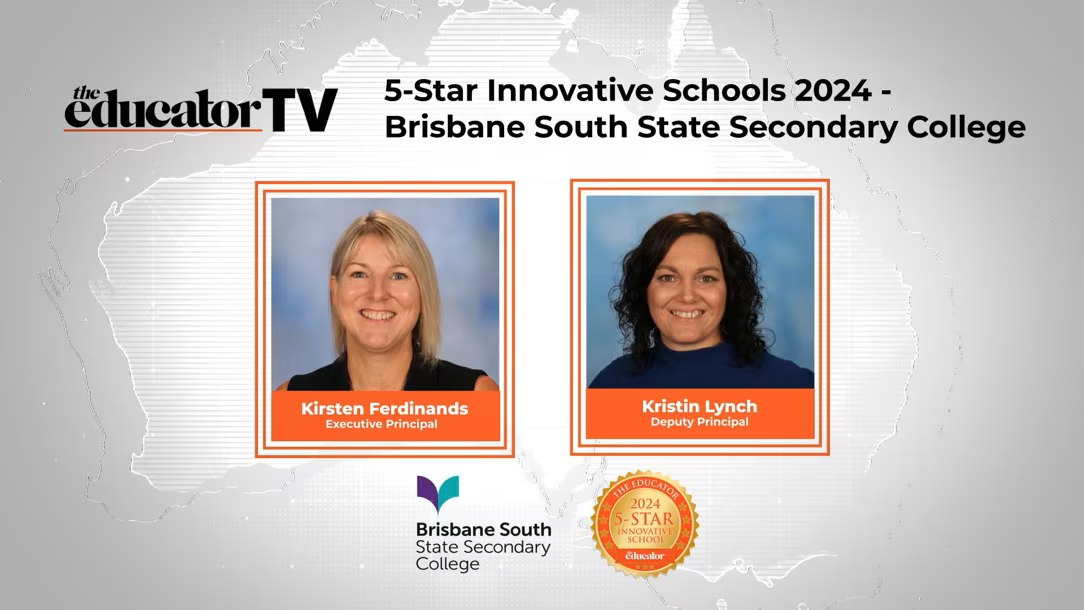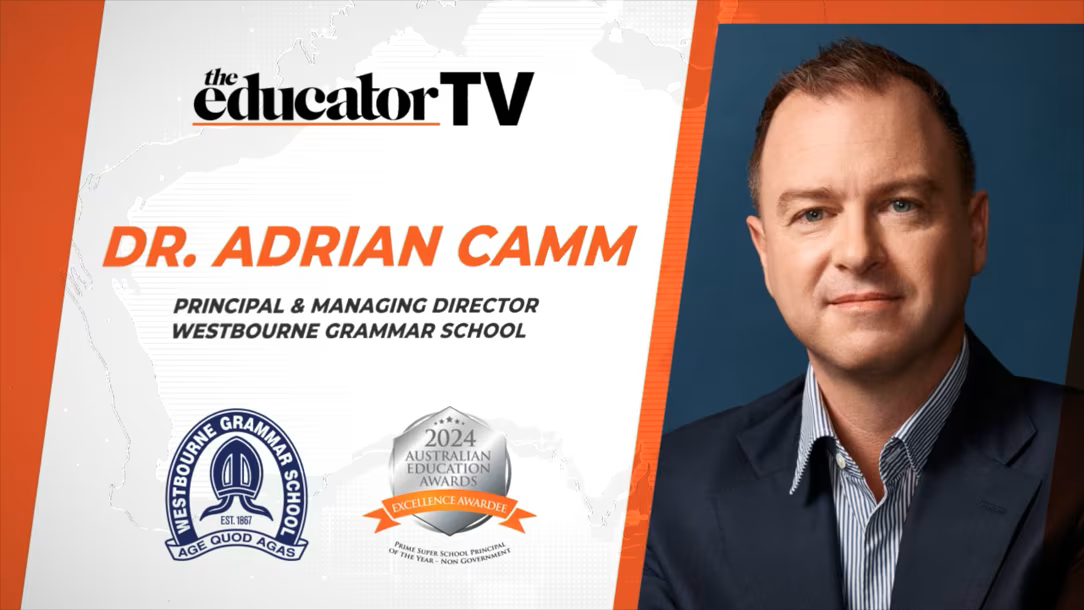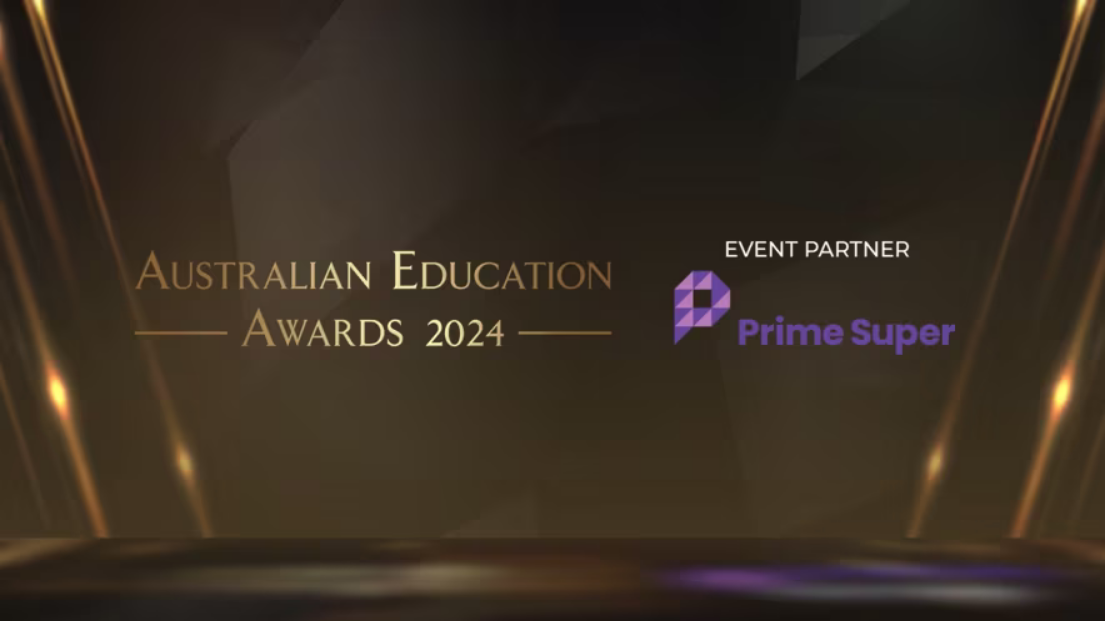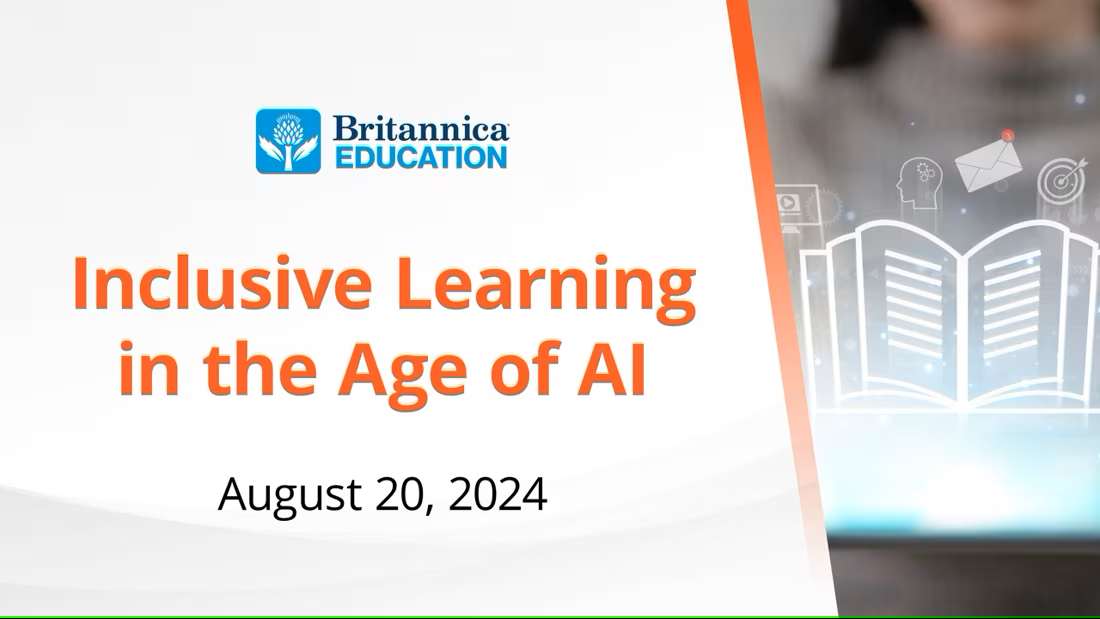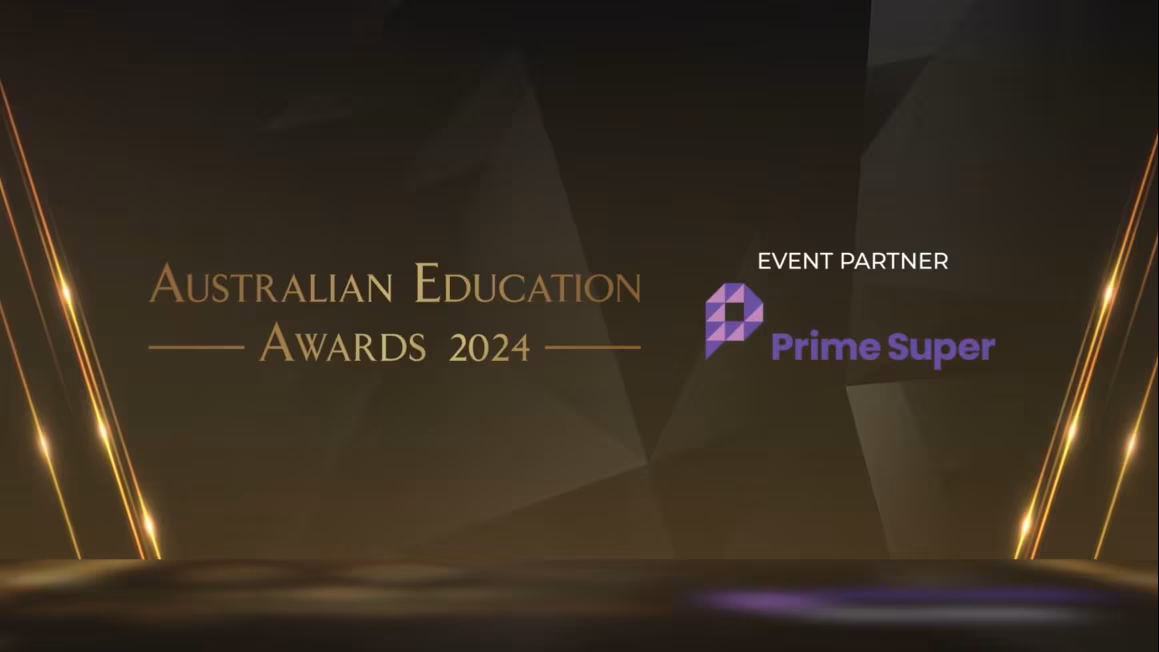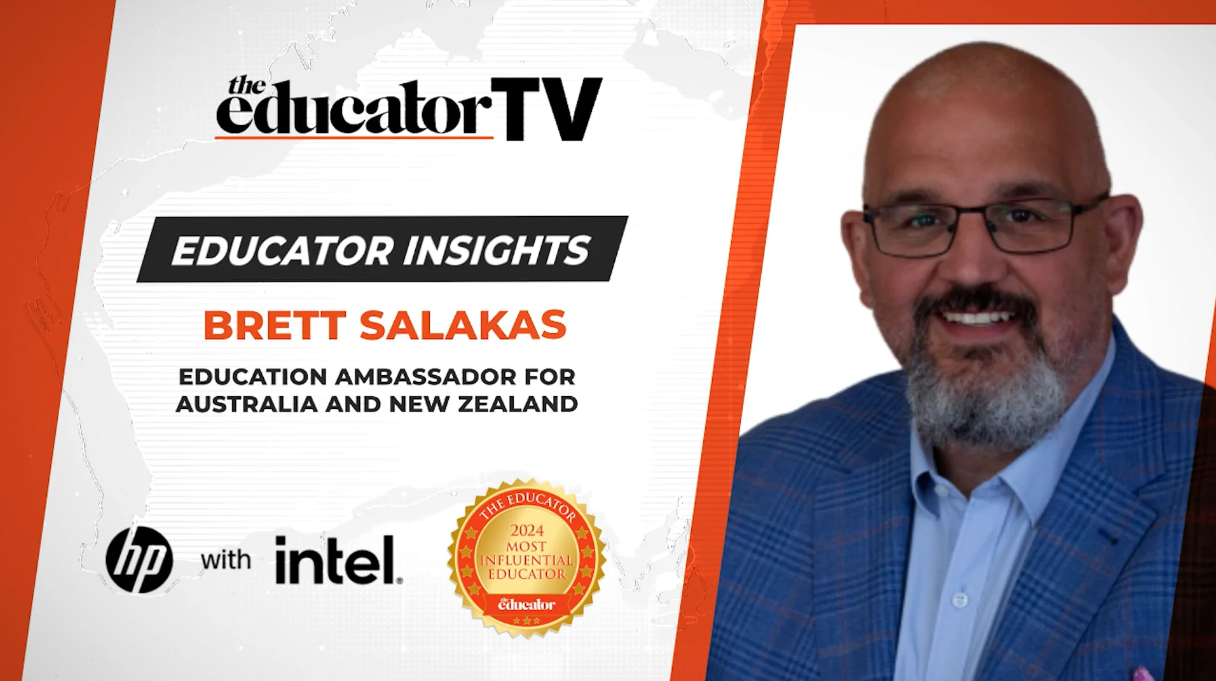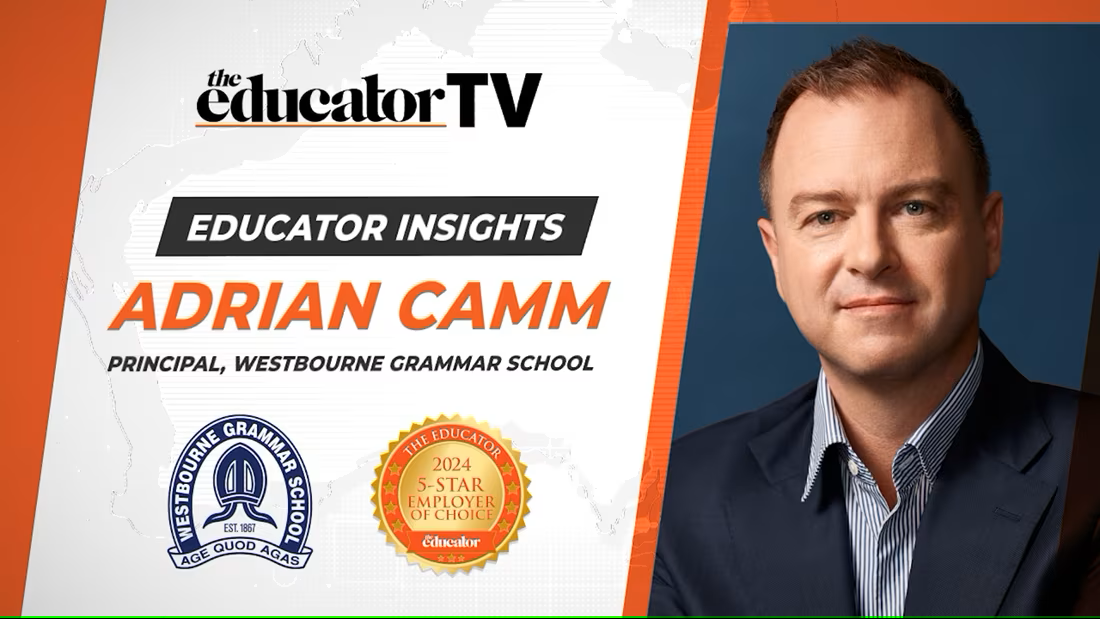Innovation alive and well at Brisbane Grammar School
At Brisbane Grammar School (BGS), a successful whole-of-school strategy is seeing student outcomes going from strength to strength. The Educator sits down with Dr Hannah Campos-Remon, the Director of Organisational Learning at BGS, to find out more.
To view full transcript, please click here
Brett: [00:00:12] Hello to our viewers. I am Brett Henebery, editor at The Educator. Today, I'm joined by Dr. Hannah Campos, director of organisational learning at Brisbane Grammar School, which was recently named one of Australia's most innovative schools for 2022. And thanks for joining us today.
Dr. Hannah: [00:00:27] Thanks for having me, Brett.
Brett: [00:00:29] A pleasure. I just want to start by asking you, what does innovation in education mean to you and how is it influenced learning design at the school?
Dr. Hannah: [00:00:41] Well, let's talk about it like this for a second. If you imagine 50 years in the future, what education will look like. You can get pretty excited pretty quickly about the possibilities. But then you start to think, but how will we get there? And as we know, as teachers and educators, a lot of what teachers do is based on what's worked in the past. So innovation becomes a really big challenge. So we're trying to just take one step at a time and think about what will the next year look like and what will the year after that look like and opening up new possibilities. And so we really try to do that by building what we call a learning organization. And it's really about commitment that when we work together collaboratively, we can engage in intentionally improving our practice all the time. And that's part of our professional dispositions, no matter which role we're in at the school. So my, my, our executive director here at the school has this saying of eating the elephant one bite at a time. So that's how we can get to this vision of what might be possible in the future in terms of transforming what education can do for young people.
Brett: [00:01:57] I don't think I've heard that phrase before, but that's quite a good one in the context. Now, I know in 2017, Brisbane Grammar launched this effective thinking cultures project and the way it was, the way you worded it was to position graduates as learning ready citizens in a rapidly changing, unpredictable global environment. Can you tell us more about this project and how it's been tracking over the last five years?
Dr. Hannah: [00:02:23] Yeah. So going back to that reason of why it's become a core initiative at the school is that just as we know that education will be changing, we also know that the world around us will be changing. And so the lives that our students will be living in terms of their work life, but also more broadly, is going to become increasingly unpredictable and unknown. And so the role of education needs to change. We know that just possessing a canon of knowledge won't be as relevant and as helpful to students as in their lives as it has been in the past, and that it's much more important that education equips them with the ability to what we call think effectively. And that can mean very broad things that contribute to their their life, their success, their wellbeing. It's about being adaptable, it's about being flexible. It's about being able to turn your intellectual capacity towards a whole range of pursuits in life. And so we really sum this up with the focus on their ability to self-regulate as learners and those skills becoming transferable regardless of what life may bring. So we've been building this work from the ground up from 2017, and we've always treated it as a cultural project. We knew that if we were going to make progress and bite the elephant one bite at a time, that it would have to be grown through the work of teachers themselves in developing their practice towards an increasing focus on the thinking that our students are able to do. So to make sure that progress keeps going, a lot of what we've been doing is learning from our teachers as we go and pulling that evidence based knowledge development back into the process of developing the program. So that's meant a lot of formal monitoring and evaluation, leading to a stages of strategizing, leading to building new infrastructure and leading to developing the program further. So it's a very iterative long term endeavour.
Brett: [00:04:31] It might be too early to gauge this yet, but there've been any remarkable outcomes that you would like to highlight over those last five years that have really stood out at the school.
Dr. Hannah: [00:04:41] Yeah. Where to start? I really have to hand it to my colleagues as part of what we've built, there's a program of continuous professional learning where we get together fortnightly with a core focus around whatever the current challenge might be for in our own learning and their growth in being open and experimental and willing to take principled risks and willing to be vulnerable at times has meant that we have more and more sharing of practice and more and more deep privatisation of the classroom so that even across subject based contexts, teachers are able to learn from each other in a way that I've never seen before, and which my colleagues agrees is remarkable and empowering and uplifting to them, even in the busyness of their lives. It's a very intense working environment, as I'm sure it is at many, many schools around Australia. The other thing is we're beginning to build a body of evidence from the boys about the way that they understand learning itself. So a few years ago we were doing data collection and talking with them about what kinds of things make a difference to you in your learning, what kinds of things help you, what kind of things don't help you? And they were fairly limited in what they could say, although they knew that collaboration was important. We now have the situation that more and more and also increasingly as they move up the year levels, they're remarkably self aware and strategic in self regulatory ways. They can talk about metacognitive strategies, they can talk about how they've adapted in ways that work for them. They can talk about how they manage their own motivations, their own dispositions, their habits and agency for learning. And so we're hoping to, like we've done in ETC, double down on that and feed their learning back to their younger peers and keep that cycle going.
Brett: [00:06:48] How empowering for both students and staff member. Now, I wanted to ask you, just looking ahead, because it's been quite a big year, but how will Brisbane Grammar be sustaining this success in 2023?
Dr. Hannah: [00:07:01] Uh, a lot of what we've learned recently is that when something is working, you let people keep doing the work. So a lot of the infrastructure that we've built that puts people in contact with one another, that helps them find support and networks to grow their practice, we will simply leave alone, let it mature and let them keep that work going because they have the agency of growing that practice themselves. But because we've been making progress, it's giving us a bit of scope to open into some new areas and some new questions. So we've got some really exciting things on the horizon of getting more and more teachers involved in developing our databases from the classroom about what can what boys can do in self regulatory ways. So there's a whole research project there which I think is going to be another layer of empowerment again, to help teachers see that the professional learning they've been doing is going somewhere. But we're also moving into, hopefully at the end of next year, a new precinct in our school, a new building which is focused around the notion of steam and transdisciplinary problem based project based learning, which is just another dimension. Again, on the type of thinking that boys can do that will serve them in their futures. And so increasingly in the year that that's coming, our teachers will be turning their learning to bringing that approach to a curriculum refinement set of goals, adapting and accommodating the new ACARA curriculum, all of those things. So we're, I guess, consolidating our existing progress because our all our data to date shows that it's taking us in the right direction.
Brett: [00:08:49] Wonderful. It certainly sounds like it is some truly inspiring stuff happening there at Brisbane Grammar. Hannah, thank you so much for joining us today and going through all that with us.
Dr. Hannah: [00:09:00] My pleasure. Thanks for having me.
Brett: [00:09:03] My pleasure.



